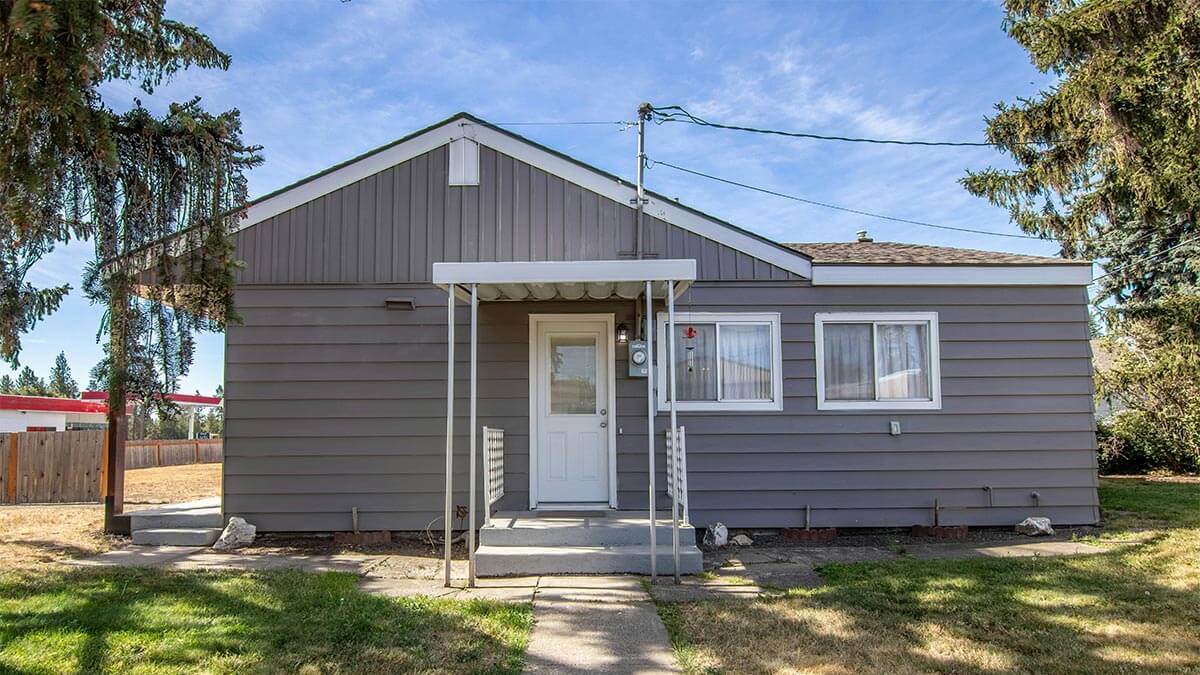Title searches are a crucial part of buying a home, as they ensure a title is clear of any claims, liens, or legal issues. Title search fees typically add up to 3-6% of the home’s purchase price. For a $400,000 home, for example, this could be around $20,000 in additional costs.
This article will explain further what a title search is, what it can cost, and how title searches protect both the buyer and the lender.
If you’re looking to simplify your home sale or purchase, iBuyer.com offers a solution. We provide cash offers for homes as-is, so you can enjoy a stress-free transaction.
Average Title Search Cost
Compare Cash Offers from Top Home Buyers. Delivered by Your Local iBuyer Certified Specialist.
One Expert, Multiple Offers, No Obligation.
How much does a title search cost?
A title search typically costs between $75 and $200. The cost varies depending on factors such as the location of the property, the value of the property, and the title company you choose. In some cases, title searches for larger or more complex properties can cost more.
Further, while most title searches only take a few hours, some can take up to two weeks. For these more complex titles, the cost will go up. Thus, it’s best to hire an experienced attorney or title search company to complete the task.
This way, you get all the information you need to close the deal without worrying about a problem coming up down the line.
You can ask the title company to provide you with a specific estimate of the title search cost before you go ahead with the investigation.
Additionally, ensure the company you choose has a recognized underwriter that will fund a claim if you experience future problems. Having the backing of a major underwriter is an excellent backup plan should a claim arise because they will pay the claim and provide your title insurance.
What is a title?
A title is a legal certification that details an asset’s ownership information and outlines the owner’s rights. You must transfer the title from the seller to the buyer when you purchase a significant asset, like a home or car.
Not transferring the title would mean the seller still owns the property, not the buyer. Here we’ll be discussing property titles for homes and raw land.
What is a title search?
A title search is an investigation into the details of a title to ensure no one else has a claim to the asset. Buyers should conduct a property title search to review the property’s ownership history and confirm that the current owner has the right to sell.
It’s more common than you would imagine for there to be title problems. For example, someone could have an inheritance dispute on the property, hindering the seller’s right to sell it.
A title search will reveal if there are any claims, easements, or liens on the property that could stall or cancel the sale. Examples of liens include:
- Liens for unpaid debts
- Mortgages
- Tax Liens
Liens stay with a property even when the title changes hands, which means if you don’t identify an existing lien, you could end up financially responsible for paying it.
Failing to identify any title problems before closing the property sale could result in expensive fees to correct the issue once you’re the owner.
A property title search will also detail legal restrictions or limitations regarding how the property can be used. For instance, the local government may have laws about:
- Pet ownership
- Number of vehicles allowed
- Process for securing personal loans for home renovation projects
You can proceed with the sale if the title search comes back clear. But if the investigation shows problems, you can work with the seller to correct the issues before the sale or abandon the purchase altogether.
Do you need a title search?
While it’s not legally required, you absolutely need to conduct a title search on a property before closing. It’s for your protection. In fact, lenders almost always require you to perform a title search and purchase title insurance as part of your mortgage.
If you’re paying cash, you can forgo the title search to close on the property faster. However, you could end up with some severe problems if title issues arise.
It’s possible that the current owner isn’t aware of issues with the title. For example, there could be an old claim against the title, or they may have inherited a lien without knowing it.
More often, there are easily fixable errors in the records that come with improper record keeping. It’s always best to perform a title search and correct the problems before continuing with the sale.
How much does it cost to do a title search yourself?
Although the title search cost is relatively inexpensive, if you’re looking to save money on the closing costs, you may consider doing the title search yourself.
Of course, you can search government records, which are free to the public. But keep in mind that counties and municipalities organize property information differently, so you should prepare to visit several government offices during your search.
Before going anywhere, you can start by going to the county’s website of where the property is located. The county assessor’s office should have the records you need about current ownership and the title transfer from the previous owner to the current owner.
Next, you need the help of the county’s deeds office. You’ll be able to identify the title chain that shows the home’s ownership history. Here you can see every person who has bought and sold the property.
You can also look for liens and judgments that might cause problems with the title using this information.
While much of the information you require will be online, you may need to visit the offices in person to get older records.
In case you can’t find what you’re looking for, the county courthouse and recorder’s office are also other trustworthy sources of information. Remember to search online or call before visiting any office in person to save time.
Most importantly, if you decide to do your own title search, it will be free but could take a lot of time. Also, you could miss something if you don’t have experience researching titles and title issues, costing you a lot in the future.
Thoughtfully consider if doing your own title search is the best decision. After all, the home buying process is stressful, and this could add more stress to your plate.
Additional title fees
The title search is only one fee included within the title fees. There are several other fees in this category to know. For instance, if you hire an attorney or title search company to conduct the search, you’ll need to pay fees for their services.
A real estate attorney’s fee will cover the cost of reviewing all your paperwork, including the property’s title.
Working with a title company will come with a title settlement fee (closing fee). This covers the administrative costs of closing, such as:
- Escrow
- Deed preparation fees
- Survey and notary fees
- Title search fees
Title companies don’t always list the cost of each fee included in the settlement fee. Ask your representative if you have questions about what the fee includes or the cost for a specific service.
Title insurance
As mentioned, if you’re taking out a mortgage, you’ll likely be required to purchase title insurance. There are two types of title insurance—one for the lender and one for the buyer.
The required policy is the lender’s title insurance. However, it only protects the lender from any claims on the property should an issue arise after the sale. It’s always possible for something to slip through the search and become a problem later on.
Owner’s title insurance is not a requirement, but most experts recommend it. You’ll receive the same protections as your lender if any claims or liens were missed during the search.
Typically, you can bundle the lender’s and owner’s title insurance together for a better price. The expense is a one-time fee that you pay during closing costs.
Lender’s title insurance is around 0.5% to 1% of the sale price of the home. Owner’s title insurance is between a few hundred to a few thousand dollars. The cost mostly depends on the state you live in and the size of your property.
Conclusion
Now that you know the answer to the question, “How much does a title search cost?” you’re one step closer to mastering the home buying process.
If you’re ready to start searching for a new home, use our free home estimator to see how much you can get from selling your current place for cash! It will help you determine how much you can afford for your next home.
Instant Valuation, Confidential Deals with a Certified iBuyer.com Specialist.
Sell Smart, Sell Fast, Get Sold. No Obligations.
Reilly Dzurick is a seasoned real estate agent at Get Land Florida, bringing over six years of industry experience to the vibrant Vero Beach market. She is known for her deep understanding of local real estate trends and her dedication to helping clients find their dream properties. Reilly’s journey in real estate is complemented by her academic background in Public Relations, Advertising, and Applied Communication from the University of North Florida.




